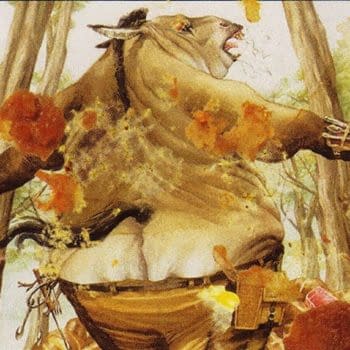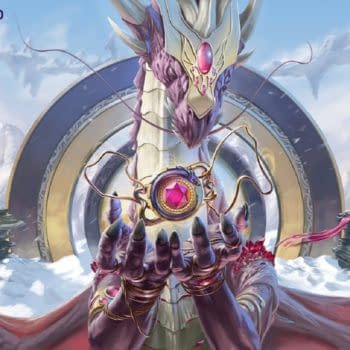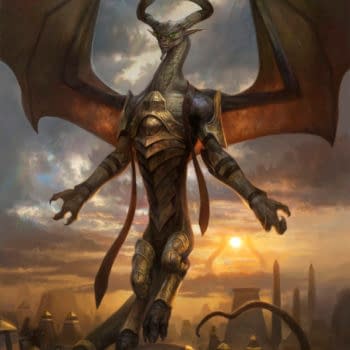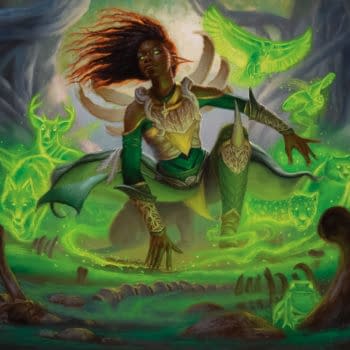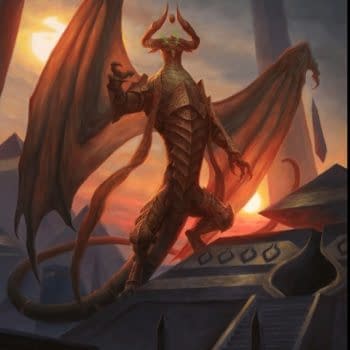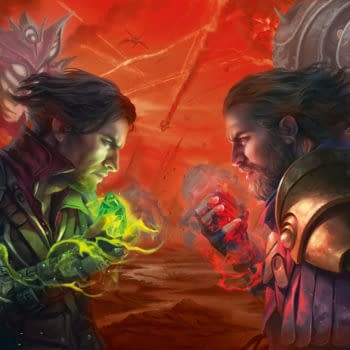Posted in: Card Games, Games, Renegade Game Studios, Review, Tabletop | Tagged: expandable card game, Vampire the Masquerade, Vampire: The Masquerade Rivals, World of Darkness
Vampire: The Masquerade Rivals Expandable Card Game: A Review
Hello, all you denizens of the World of Darkness! …And, anyone interested in Renegade Game Studios' games, of course. We reviewed gameplay for Renegade's expandable card game Vampire: The Masquerade Rivals almost exactly a year ago, and we finally got our claws on an advance copy of the game to review for your discernment. Here's what we think of the game as a product!
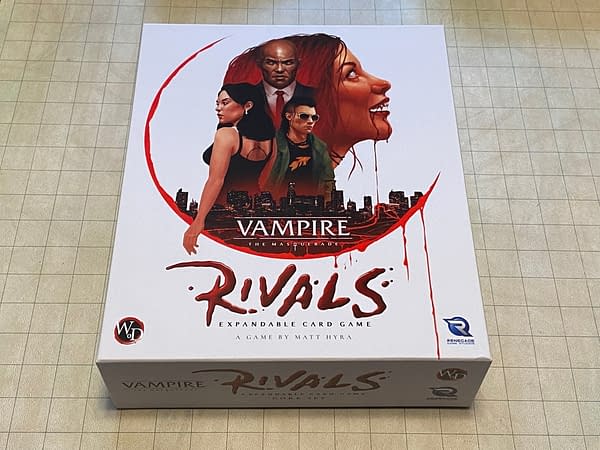
The box for this game is oddly heavy. It's clear that the game is a card game and enough decks of cardstock components would weigh most any box this size down, but this one only has six clusters of cards – four preconstructed decks with one for each vampire house, a Crypt deck, and some more cards. That combined with the cardboard token sheet doesn't seem like enough to weigh the box that much, but here we are. It's not a complaint, but it's interesting.
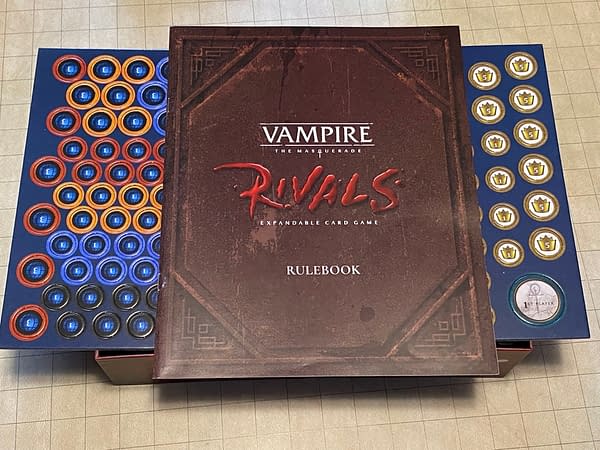
The core rulebook for the game is pretty light as well. The game, as we recall, explained the following tidbits of information in practice:
- The game is an asymmetrical card game, with four different starter decks in the core release: one for each of the major vampire houses of Brujah, Ventrue, Toreador, and Malkavian.
- Each of the vampire houses uses a different set of agendas and playstyles to secure victory in the game. For example, Brujah is the brawler faction, relying on combat prowess to win, while Malkavians use Conspiracies to win under their game plan.
- Each vampire house has a rival house that they need to clear of active vampires as an alternate means of winning. In our demo last year, the Brujah vampires had to vanquish the Ventrues while the Toreadors had to take down the Brujahs, for example. This led to an interesting dance of defending while maintaining a steady offensive. It also meant that, in a four-player game, each player has a tentative ally in the player uninvolved in either of those rivalries.
So, knowing this, the game feels much like a dance, which is, as we mentioned in our gameplay review, very elegant.
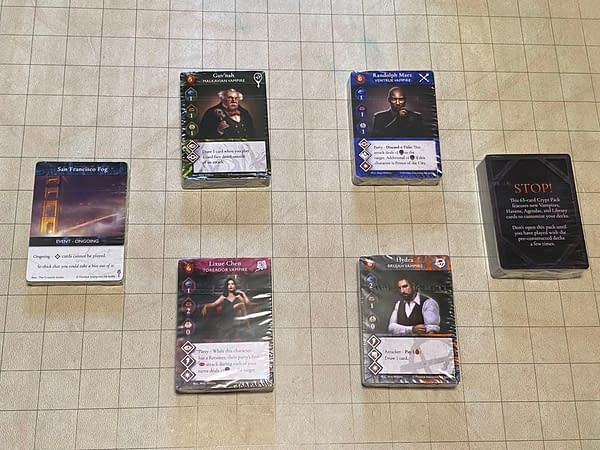
If you are looking to pick this game up but are unsure of the level of fun or playability behind it, we recommend you pick it up. Have you demoed Vampire: The Masquerade Rivals before? What did you think about it? Let us know in the comments below!


